Podcast (top-left-corner): Play in new window | Download
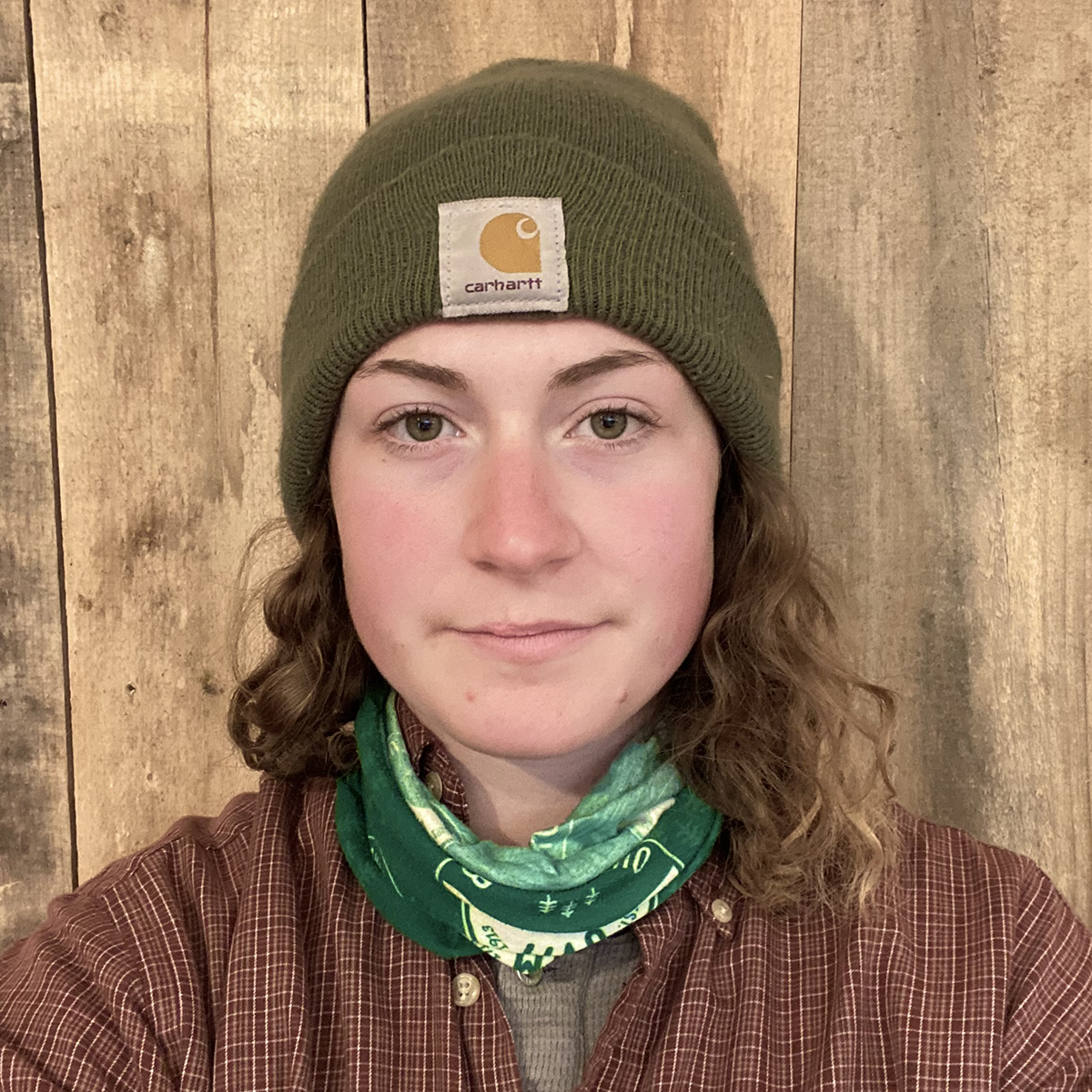
Today’s guest is Robin Chadwell, who is helping spearhead a campaign for peace in the Middle East. A letter she has been circulating is garnering an increasing number of signatories as the situation for Palestinians, both in Gaza and in the occupied West Bank grows more dire by the hour.
Robin Chadwell (she/her) is a farmer and caregiver for adults with developmental disabilities in Great Barrington, MA. When she isn’t working, she plays pick-up soccer, writes poetry, and watches reality TV.
Jay Velázquez: That is correct. In fact, this is episode 183 of the top left corner right here on The Greylock Glass GreylockGlass.com, the Berkshires mightiest independent alternative news thing. Welcome. I’m your host, Jay Velázquez, known in an alternate zip code as the Mongrel. It’s great to have you with us on this November 1st. Rabbit. Rabbit. Rabbit. Good luck. 2023. It’s a Wednesday and if you looked out your window, you might have seen that it was a snowy Wednesday. Tell you what, those trick or treaters dodged the bullet last night, but boy was that a shocker. This morning, I know that. Climate scientists have predicted that because it’s going to be it is an El Nino year, that the winter is going to be milder. But if this is if this is how we’re going to lead into it, I don’t know, you know, could be could be anything and it’s anybody’s game anyway. Right. This is New England. This is what we get. We don’t get upset. Today is going to show us. Really.
We’re actually not staying local, at least not in terms of the topic we’re going to be discussing the conflict. In Gaza right now, at least 8000. I think 400 Palestinians have been killed in Israel’s assault, which was a response to the attacks by Hamas on. Well, first military bases and then innocent civilians in the West Bank.
And if innocent civilians in towns surrounding the Gaza Strip, some 1400 civilians were killed by Hamas fighters. And the retribution has been swift. It has been certain. And it is being called genocide by many, many level headed people. And this is a conflict that has the potential to spin way, way out of control, as we know. Israel is a nuclear armed state, though not officially. Iran may be a nuclear state. We’re not sure about that. We know that Pakistan is in support of Palestinian right now, and they’re definitely a nuclear armed state. And. Russia and China are. Not in favor of what’s going on. So we have all the makings of some geopolitical flash and. And spark, and we really would like to see that not happen. You know this this is a nice planet. I like this planet. I don’t want to see it exploded, but that is only going to happen, or that’s only going to be prevented if people speak up.
And my guest today, Robin Chadwell, who is a farmer and caregiver for adults with developmental disabilities in Great Barrington, Massachusetts, Robin has. Um, started a letter and has. Written an open letter in support of a of a piece, and she has managed to get lots of signatories. I know she’s also got some help from from other folks in this endeavor, and she’ll describe that.
The idea here is that she feels, as do the signatories of this open letter, that people have got to speak up if they don’t like what they see going on. Don’t like our the United States involvement in it? It is, after all, mostly our weaponry that is being used in this conflict that is killing innocents. We know that at least. Well, just about half of the population of the Gaza Strip are children, and pretty much half of the of the casualties can be expected to be children. We know that there have been around 8500 casualties so far. Civilian casualties. And that number rises. In fact, we don’t even know for sure how accurate that is. It might be much higher. So without any further ado, because I think the the interview is going to speak for itself, let’s get to that conversation with Robin Chadwell right here in the top left corner.
Top Left Corner: And with me on the line is Robin Chadwell of High Spirits Community Farm. Robin, thanks so much for coming on the show.
Robin Chadwell: Thank you, Jason, for having me. I appreciate it.
Top Left Corner: Well, this is an issue that I have been struggling with how to cover. I’ve written a little bit about it in the glass, but I don’t feel like I have really done. Enough to to shine a spotlight on the real tragedy that is the conflict between Israel and. Excuse me. Israel and Palestine. And your letter. Your letter to the editor. And? And I wouldn’t call it a petition. Exactly. But your your open letter demanding change is just the sort of impetus that I needed. So why don’t you, first of all, tell me a little bit about how you came to find yourself motivated to to to care. First of all, just to care about this issue.
Robin Chadwell: Sure, sure. Um huh. That’s kind of a that’s an interesting question. I think that the the motivation to write this open letter and reach out to my community members for help in crafting it came honestly from just like this feeling of desperation. Um. You know, this has been like a long time coming, but the the attack. From Hamas. On October 8th, you know, that really it’s it really kind of brought into focus what the actual conversation in this community is around Zionism, around Palestinian liberation. And I was a little bit shocked at how imbalanced that conversation seemed, and I didn’t really know where to find my community members that were also, you know, in support of a free Palestine and in support of. Ending the occupation of Palestine by the State of Israel. So, you know, I felt pretty helpless. And I thought, you know, I’m an okay writer. I could I could write something and send it to friends in the community. And. And thankfully, some really brilliant folks who live in Berkshire County. They reached back out to me and they said, yes, let’s do this. And I assure you, they have a much more thorough understanding of the history of this issue than I do, and I’m just so grateful for their help and their knowledge in. And it really became like a pretty. Yeah, it became a pretty, pretty great catalyst for for organizing in this community.
Top Left Corner: So yeah, I think I’m trying to find the both sides ism argument and and seeing whether or not it’s justifiable. Obviously nobody nobody is for the slaughter of innocents. And the Hamas attack, while not justifiable, might be a symptom of the the very desperation that the Palestinians are experiencing at this point. So when I asked why, how did you come to care about it? I’m actually even wondering how you what you’ve heard about it, where you’ve heard about it, because the majority of Americans have really not paid attention to it at all. So like, when did you first start becoming aware of the situation?
Robin Chadwell: Yeah, I first started becoming aware of. Yeah. The occupation of Palestine. Probably back in college, I’d say. I think I have a pretty, maybe a cliché story of political radicalization in that I went to college and I joined a socialist organization, and a big part of that organization was about membership education. And so I found myself reading lots about Palestine, learning a lot, didn’t know anything prior to that. Um, and I think what really? You know, kept it. Central in my mind over the years has been the parallel that you can draw between the occupation of Palestine, the slow motion genocide of Palestinians over the last 75 years. The parallel you can draw between that and the history of the land that you and I are sitting, standing, talking on right now. They’re not totally different. And now, you know, we can see we can see the perpetrator of one genocide. The United States, we can see that perpetrator now giving support to another, smaller but very powerful state who is interested in doing the same thing, committing genocide and and and taking. Taking the land of the Palestinian people. So yeah, it all started started back in college. But it’s been, you know, in my mind for, for many years now and I think. I am still very much learning. I started learning a while ago, but I’m still putting the pieces together and I think that’s okay. I think one of the most important things for people to realize when it comes to this issue is that you don’t have to be an expert to to start to start talking about it. You don’t need to know every detail. I think that’s kind of a trap that people fall into, and it actually pushes people out of the movement in a way that is pretty counterproductive.
Top Left Corner: I agree with you. And and I certainly would not classify myself as an expert. I’m just shocked that there’s so much that goes beyond what any of us would tolerate if it were happening to our, our communities and our family. And it’s been going on for so long. And as you point out in your open letter, the United States has been giving 3 billion plus dollars a year to Israel, mostly in terms of military aid. And so we’re really we we are not. The objective bystander that we’re that the say the Biden administration is pretending to be. What is your sense about the average American’s understanding of the situation and and their sympathies just based on what you see? Am I am I right in assuming that that there’s a that they’ve been kind of brainwashed?
Robin Chadwell: Yeah, that’s a good question. My sense is that. Folks who. And maybe this is naive. Maybe this is a little bit. Yeah. We’ll see. I’ll say it and we’ll see. My sense is that, um, a lot of people are scared of saying the wrong thing. Naturally. Me too. And for that reason, may not be outwardly supportive of Palestine. You know, I think there’s the risk. You run the risk right now of if you come out in support of a free Palestine, you run the risk of being called anti-Semitic. You run the risk of painting yourself in a way that, you know, just being misunderstood by other people. So I think, you know, it seems it’s pretty mainstream popular right now to have your sympathies be with the state of Israel. And I want to come at that from a place of compassion and believe that people believe that people are trying, trying. To do the right thing, trying to follow what the thread is in terms of who deserves justice, who’s being oppressed here. And I think, unfortunately, you know, we live in a place we consume media that has, just like you said, has been totally skewed in favor of the Israeli state.
Robin Chadwell: So I think people have been consuming information that has that has misled them. But I think that there is the capacity within those same people to change their minds. And I don’t think people can change their minds unless we kind of meet them with compassion and understanding. I think it’s possible. I think it’s important to remember that, you know, we’re all kind of products of circumstances. And maybe if I didn’t end up at the university I ended up at in the socialist organization, I ended up in, like, who knows what I would think right now. I feel so I feel so blessed that I have followed the trajectory I have. But I don’t think that’s a sign of any sort of intellectual or moral superiority. I think it’s just I was in the right time at the right place. I think there are a lot of people out there who are misguided and also have the ability and hopefully the bravery to change their minds.
Top Left Corner: I think that we all want to know what’s happening and we don’t want to as as an Al Jazeera reporter was quoted on Democracy Now! This morning or no, actually it was Thursday. She was saying, do we not report on missiles that land in Israel? Do we not report when Hamas does, you know, conducts, you know, inhumane attacks on innocents? Yeah. I mean, we do that. So so why is it that, you know, when we report on one thing, we are to be lauded and when we report on something else, you don’t believe us? I mean, Biden said last week, he said, I have no notion, quote, I have no notion that the Palestinians are telling the truth about how many people are killed. Biden replied, quote, I’m sure innocents have been killed. It’s the price of waging a war, end quote. What is your response to that?
Robin Chadwell: Uh, rage. Um. Pure rage. Um. Yeah. I mean. I’ve been, honestly. I mean, I think we’ve all known for a long time that Biden is no friend of the truly, you know, no friend of the movement for liberation. Certainly. But I have been. Somehow still shocked at the way he’s handled this situation. The way he’s responded at least expected him to feign a like, feign sympathy for Palestine, or feign some sense of even neutrality about the issue. Both of those. I would have, of course, have been in genuine, but still I expected him to at least try to fake it. So. Yeah, that that questioning of the death toll. Uh. Yeah, I mean, it makes me extremely upset. It’s. It’s an active. I mean, it feels like an active cover up of an ongoing genocide. It’s hard to believe. It’s hard to believe that he could could say that. But, you know, we’re not. Those of us who have been in this movement for a long time and struggling for. The liberation of all peoples. We know that we we never thought that Biden was an ally to that struggle. So. Yeah. I mean, it’s I guess it’s par for the course, you know, like one empire supports the other.
Top Left Corner: Yeah, yeah. And certainly Israel is acting very much like a colonialist power in Palestine. Secretary-general Antonio Guterres said this was also last week he called for a humanitarian cease fire, and that has been rejected by the United States. Russia, China and others have put forward a referendum to have a complete humanitarian cease fire, which has been rejected by Britain and the United States. The United States put forward a humanitarian pause, which I’m not even nobody’s even exactly sure what that means and why that’s different. But this comes after Biden says that now is not the time for a cease fire, which I thought was interesting because I always thought it was always a good time to stop the flow of blood. But, you know, I guess sometimes, no, that’s exactly what you should be doing. But Guterres said, quote, it is important to recognize to also recognize the attacks by Hamas did not happen in a vacuum. The Palestinian people have been subjected to 56 years of suffocating occupation. They have seen their land steadily devoured by settlements and plagued by violence. Their economy stifled, their people displaced, and their homes demolished. That is the head of the United Nations and in the United Nations, 120. Member states voted to for an immediate cease fire. And I think it was 14 largely sort of client states that that depend on on the United States. You know, money basically voting with the US and Great Britain. What about this notion of the United States being one of the only countries on the planet to support Israel? What should that what should that be telling the world, and what should that be telling our own populace?
Robin Chadwell: I mean, I’m no expert, but I’ll tell you what. What my gut reaction is is that. You know, for the US too. For the US to say that it isn’t right for Israel to occupy Palestine, for the US to acknowledge that, in fact, like, this isn’t a war, this is genocide. For the US to acknowledge that Israel is a, you know, a colonial force that’s aiming to eradicate an entire people, to expand its own empire. That would mean that the US would have to look at its own history. Right? Like that would mean that the US would have to acknowledge what it has done.
Robin Chadwell: Indigenous people of the Americas and I don’t I don’t think the US is willing to do that. So it’s kind of like a house of cards if the US admits. Admits to what’s going on in Palestine, then their whole story kind of falls apart. Um, you know, their own self narrative falls apart. So I mean, I’m sure that’s not that’s not all there is to it, but.
Top Left Corner: I think that’s a lot of it. I think that’s a huge amount of it and maybe even sort of the, maybe the early underpinnings of a lot of our foreign policy in, in this conflict and in others, we basically are willing to support those who have, who behave the way we have behaved. And I think that there are a lot of folks who want to do something. What is it that your letter urges people to do?
Robin Chadwell: Yeah, yeah. Um, so our letter has three calls to action, and I want to first just name how instrumental the folks over at Freedom Farm in Sheffield, Massachusetts have been the folks over at Finca Luna Bajo. They have been incredible in crafting this letter and were instrumental in naming these three actions. So the first one is. You know, and urging people to contact their government officials daily to demand an end to the US, aid to Israel. To demand an immediate cease fire. And on top of that, to end the occupation of Palestine. That’s number one, very basic. Calling your government officials there. Information is out there. Leave them voicemails, you know, tell them that they won’t have your vote if you if they don’t make these demands and use their power in the right way. Tell them that you will organize against them in the next election, because we will. The second call to action is for folks to educate themselves on what’s happening while centering the voices of Palestinians. So there’s a great a brilliant resource list, um, linked to in the letter, which I’m guessing folks can find in the show notes, which the folks over at. Yeah. Which the folks over at Finkelman BuJo put together. It’s brilliant. It’s extensive use that. It’s incredible. And then the last one is maybe the most important one. Know, calling is really great. Reading books is really great, but we’re just asking people to, you know, find the protest that’s happening in your town or the next town over. Find the vigils that are happening, come together in community and keep keep coming together. Keep being loud, keep making noise. Keep disrupting status quo until until Palestine is free. You know, this goes beyond the ceasefire. Like that. Yes, that’s number one ceasefire now. Absolutely. Um, but let’s not have a ceasefire and then have everything go quiet for the next four years and then watch this all happen again. We have to keep going until the illegal occupation is ended.
Top Left Corner: That’s, I think, such an important, such an important facet of this, that it’s almost as if people are counting on the glazed form over our eyes and the wax, the wax to build up in our ears because. The occupation. It’s not like it’s newly illegal. It’s been illegal all this time. And people have had Free Palestine bumper stickers, you know, on their cars since, well, since as long as I can remember. It’s the, it’s it’s the case that, you know, like you said, you have to keep at it. We don’t have a peace movement in this country to speak of, at least not a robust, you know, sort of muscular one that can really force conversation on the issues. Do you think this might be the thing that’s going to change and maybe get people back into an anti, if not a peace movement, you know, with the patchouli and the beads, at least an antiwar movement for the for the very pragmatic reasons.
Robin Chadwell: I mean, I certainly hope so. I think movements like that are the culmination of years of an ebb and flow of political consciousness and. I think every time we enter into a moment like this, a moment that really just feels. Uh, like the definition of crisis, right? Like where it feels like we’re we’re on a clock right now to to end the occupation of Palestine, or else there’s going to be grave consequences that already have been. But I think each time we enter into a moment like this, we get closer to. Oh, I don’t know, like turning that corner from political complacency into, you know, kind of bringing issues like this into the mainstream. I think that’s another thing that I’ll say about, you know, the whole hope of this, this open letter that so many folks contributed to it. The idea was that. I think that in our little Berkshire County bubble, some mainstream neo liberal type folk might imagine that activism, that the antiwar movement, that the liberation movement exists only on the fringes of, of their county. They don’t necessarily imagine that it’s their neighbor or the farmer that they buy their CSA from, or the person who serves them. Coffee at fuel. Right? Um, yeah. It’s we’re not on the fringes. This movement is central. To this country and this county. And I think that, yeah, I think that it we’re getting closer to a more consistent, ongoing antiwar movement. Um, who’s to say? I just hope we don’t lose momentum.
Top Left Corner: Um, this letter, obviously, we’re going to be, you know, putting it in the show notes as you as you correctly guessed. And we’re going to be making sure that link to the additional resources is is intact and people can click on that. What other ideas do you have that that may be visible that may be in person? Do you have any other events planned or anything like that, or is this sort of still the first, first stages?
Robin Chadwell: Um, this is still kind of the first stages. I think the only, the only other thing I’d say is to echo the other folks who have contributed to this. I think it’s important to all of us that the people who are maybe listening to your podcast or reading this letter, it’s important to us that they know if they disagree with us like we. Like we’re here. We’re here to talk this through. We’re your neighbors. Like this is an attempt to.
Robin Chadwell: Keep our wits about us and remember that we’re we’re neighbors. We’re we’re friends. We’re all community members. And, um, this is not meant to be divisive. In fact, it’s meant to, uh, bring people, bring people together kind of toward, like, some sort of common compassion. Um.
Robin Chadwell: Yeah, we’re in the beginning stages, but I know for a fact that some of the folks who have signed this letter are involved in organizing rallies, and I know there are more to come. So I’d just say stay tuned, keep an eye out, keep an ear out, and I hope to see you there at the next rally.
Top Left Corner: I hope to be there and I hope to promote it through all of our channels. And I just want to leave people with this one. You know, from my part, I want to leave people with this. One last point yesterday. Well, yesterday. But their time today. Our time. Turkey’s President Erdogan said at a press conference, quote, as was the case yesterday, Turkey continues to stand with its Palestinian brothers and sisters today as well, doing unconditionally what this requires. However, the Western world, particularly European countries, has once again failed the test of humanity in Gaza. Look, children have been dying, women have been dying, and hospitals have been are being have been bombarded for 25 days. And he goes on to say that preventing the Gaza massacre is their top priority. Um, I think it it should be noted that Turkey is a nuclear armed state. As is maybe Iran, that we don’t know that for sure. And we know that Israel is also a nuclear armed state, although not officially. And if you don’t like the concept of of a nuclear holocaust, then probably the first thing to do is to start preventing a humanitarian holocaust in Gaza, because the little hand on the doomsday or the large hand on the doomsday Clock is, I think, at less than one second to midnight right now. So it’s probably a good idea to read this letter, sign on to this letter. How can people sign on to this letter, by the way?
Robin Chadwell: So this letter, we have submitted it, our hope is that it can be submitted as or published rather as a press release or a letter to the editor. However, local newspapers want to frame it. Our hope is that it’s, you know, it can be published any day now. We’ve been walking this line, trying to balance, uh, trying to balance, waiting to send this out to publishers so that we can accumulate as many signatures as possible. Balancing that, and the fact that this is an extremely urgent issue and it needs to go out yesterday. Right. So the letter has already been submitted. But people I mean. People are welcome to follow Pal action on Instagram. A lot of our community members who have helped with this letter are involved in Pal action. And, you know, I just encourage you to yeah, again, just dive deep into that resource list, that pink bujo listed in the letter, because it will it’ll direct you to the resources you need in order to get more involved.
Top Left Corner: And people can always sign on in spirit by, I suppose, adding their their thoughts in the comments below. And that way they can sort of be, you know, in spirit signing that letter. And we can keep checking back and see how long it grows. Yeah. Well, I have to say, you know, this has been this has been a really great conversation. We could go on for a day easily because there’s so many issues to talk about. But you’ve hit the main points and with your three actions that you want people to take, I think that there’s a good that’s a good start. So, Robin, I want to thank you for coming on the top left corner and keep us up to date with anything that that comes up, you know, in the way of events. Certainly.
Robin Chadwell: Yeah, absolutely. Thank you so much, Jason.
Top Left Corner: All right. Take care and I’ll let you get back to the farm.
Robin Chadwell: Thank you. Appreciate it.
Open Letter: Community members demand a #FreePalestine
May this message meet you in solidarity. As we come together to take action, we are trembling at the same time. There is so much pain, trauma, and tenderness at this moment, and it is challenging to find the right words to respond to it. We hope you read this and remember that humans who love you wrote it.
We are your neighbors, farmers, caregivers, friends. We pray that you are finding ways to hold, support, and hear each other during this time. We have been in community—in protest and prayer—these last days. We have been educating ourselves about the conditions that have led us to what we are witnessing today. We have been deeply introspective so that we may actually feel the gravity of what is happening here.
We mourn the deaths of each and every being. We grieve and are enraged as the Israeli government wages a genocidal war on the people of Palestine with the full financial and political support of the United States government. We grieve for the land taken from Palestinian tending, the olive trees cut down, the land burnt, fenced and walled, the air heavy with contamination from bombs (many manufactured in the US), and the ongoing contamination and deprivation of water to the Palestinian people.
“Our federal taxes contribute $3 billion yearly in military and economic aid to Israel. Over $200 million of that money is spent fighting the uprising of Palestinian people who are trying to end the military occupation of their homeland. Israeli soldiers fire tear gas canisters made in america into Palestinian homes and hospitals, killing babies, the sick, and the elderly…Encouraging your congresspeople to press for a peaceful solution in the Middle East, and for recognition of the rights of the Palestinian people, is not altruism, it is survival. ”
— AUDRE LORDE, OBERLIN COLLEGE COMMENCEMENT ADDRESS, MAY 29, 1989
That was in 1989. Today, according to the Congressional Research Service, “the United States has provided Israel $150 billion (current, or non inflation-adjusted, dollars) in bilateral assistance and missile defense funding. At present, almost all U.S. bilateral aid to Israel is in the form of military assistance.”
We call on our community members to take action in the following ways:
- Contact your government officials DAILY – demand an end to US aid to Israel, an immediate ceasefire, and an end to the occupation of Palestine.
- Educate yourselves on what is happening, centering the voices of Palestinians. We’ve shared a resource list HERE.
- Join your communities that gather in organizing and protest.
Solidarity until Palestine is free.
We are asking you, in the face of unimaginable tragedy, to take up a practice of fierce compassion. We know that to do so is no small feat and requires deep courage. But we, your community, believe in our collective strength to do this.
Finally, we leave you with the words of Palestinian poet and activist, Suheir Hammad: “Occupation means that every day you die, and the world watches in silence. As if your death was nothing, as if you were a stone falling in the earth, water falling over water.
And if you face all of this death and indifference and keep your humanity, and your love and your dignity and you refuse to surrender to their terror, then you know something of the courage that is Palestine.”
In love and solidarity,
Signed:
Robin Chadwell, of High Spirit Community Farm
Lesley Eshelman, Great Barrington, MA
Abi Childs, Berkshires DSA Chair
atalanta sungurov, from Finca Luna Búho
Fran Sequeira Calderón, from Finca Luna Búho
Hanyil López Lira, from Finca Luna Búho
José Gutierrez Calderón, from Finca Luna Búho
Sunder Ashni, Mumbet’s Freedom Farm
Jennifer Maas, Cheshire, MA
Kamaar Taliaferro, Pittsfield, MA
Anaelisa Vanegas, Manos Unidas Co-op
Kristina Cardot, Corazonidos Community School
Joe Scully, Lee, MA
John Prusinski, former Berkshires DSA Co-chair
Hunter Pratt, Cheshire, MA
Marina Fortier, Cheshire, MA
Maddie Elling, West Stockbridge, MA
Abe Hunrichs, West Stockbridge, MA
Hugo Wasserman, Housatonic, MA
Sara Wallach, Great Barrington, MA
Hannah Walker, Housatonic, MA
Mae Whaley, Housatonic, MA
Geneva Gray, Great Barrington, MA
Alejandro Hernandez Chavez, Great Barrington, MA
Clemente Sajquiy, Housatonic, MA
Rebecca Strout, Pittsfield, MA on unceded Mohican land
Julia Keenan, Great Barrington, MA
Michael Vincent Bushy, Pittsfield, MA
Honora Toole, Great Barrington, MA
Cara Petricca, Cheshire, MA
Hedley Stone, Richmond, MA
Sarah Kate Hartt, Great Barrington, MA
Becca Litwin, Monterey, MA
Sean Stanton, Great Barrington, MA
Lillian Volat, Housatonic, MA
Meg Bantle, Full Well Farm
Laura Tupper-Palches, Full Well Farm
Elizabeth Caldwell, Great Barrington, MA
Jay Velázquez: Sobering, sobering discussion there with Robin Chadwell. Remember that there are resources that link to resources in the show notes. If you are listening via one of your podcast apps or Spotify, Apple Podcasts, Google Podcasts, Be sure to check out the show notes for that information and to read the letter that Robin is discussing.
And if you happen to be on the page on the podcast page at GreylockGlass.com, leave a note under the under the show notes. Leave a comment. Add your name to the letter if you agree. If you don’t agree, then post a a civil, um explanation as to why. For now, that’s this show and we will talk again soon. I’m not sure what the subject is going to be. I do know that there’s been some discussion.
People have asked me, why do I keep calling this show the top left corner, which was originally meant to be sort of a, you know, North County, the very top left corner of Massachusetts. But it is true that I keep talking about things that may be Mid County, South County. Or no county. Not sure what to say about them. Not sure what to do about that. Maybe we need a different name for this show. Tough to say, but we’ll keep chewing on that. Maybe we need to keep this show and keep it local, hyper local and have a new show. Hit me up with your opinions if you think that’s the case. If that’s what we need. Editor at GreylockGlass.com I always love to hear from you. And until next time, stay safe. Be good to each other and go easy on yourself. Bye now.

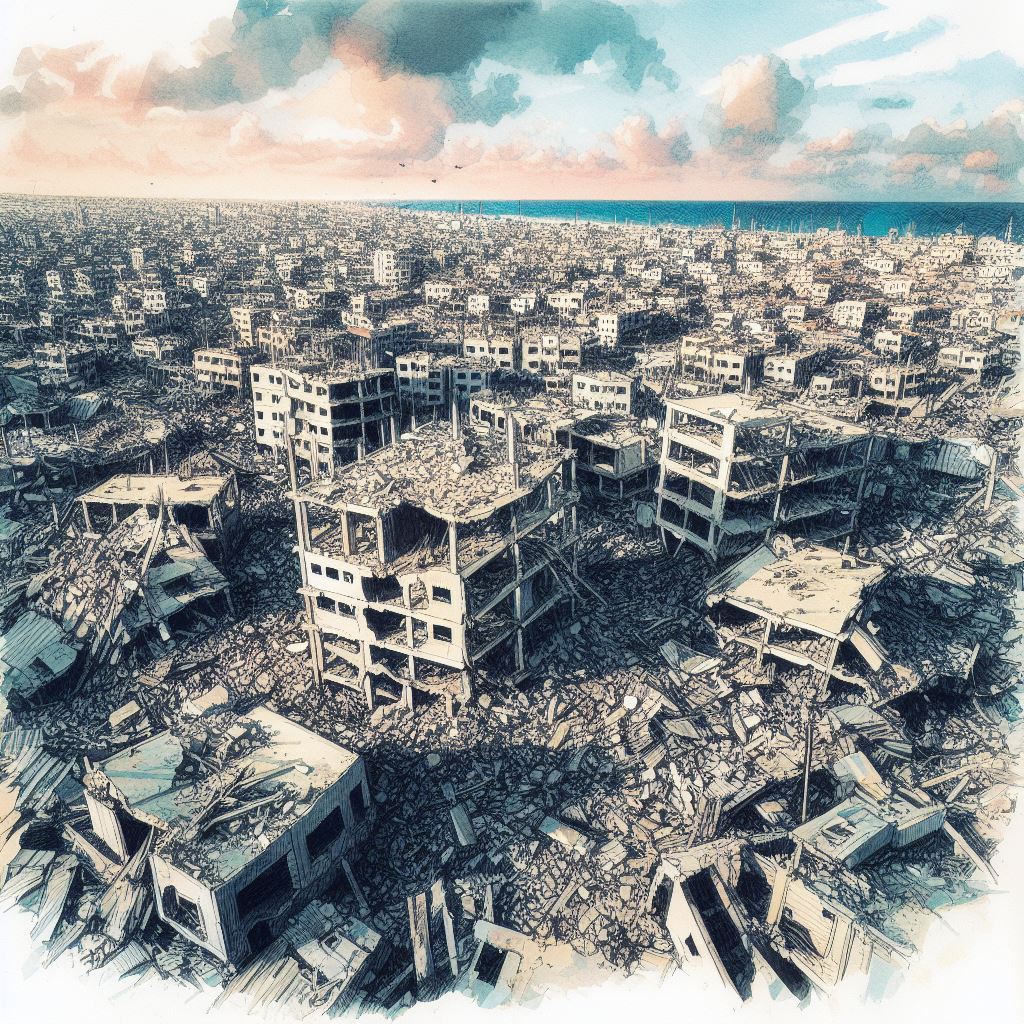
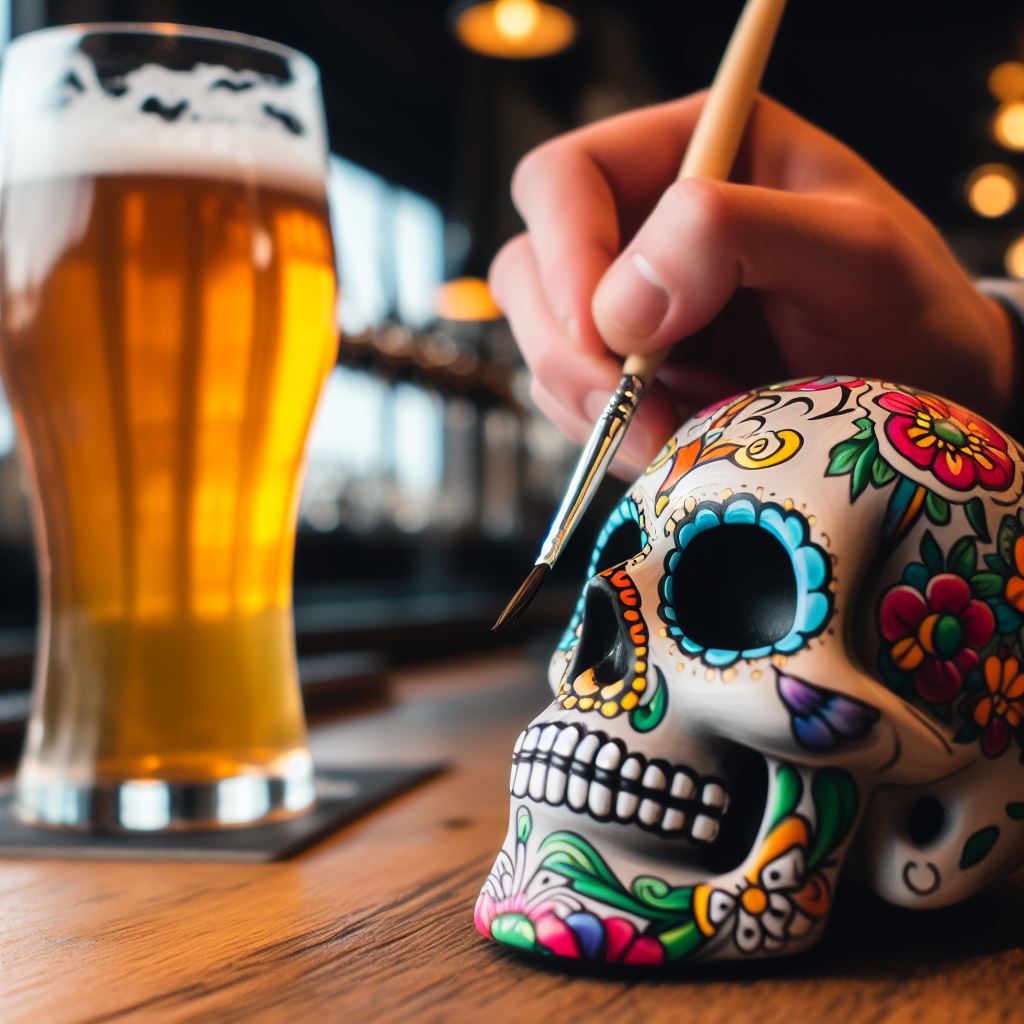
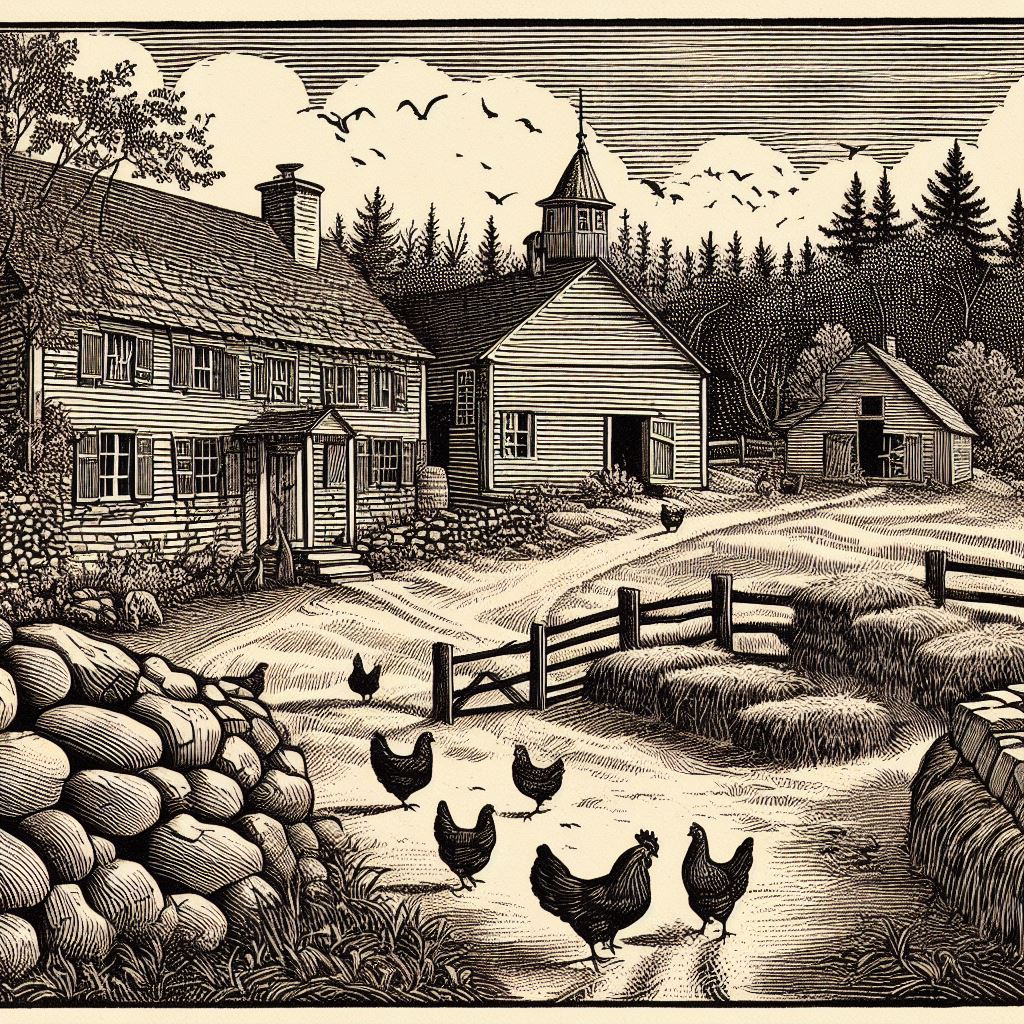
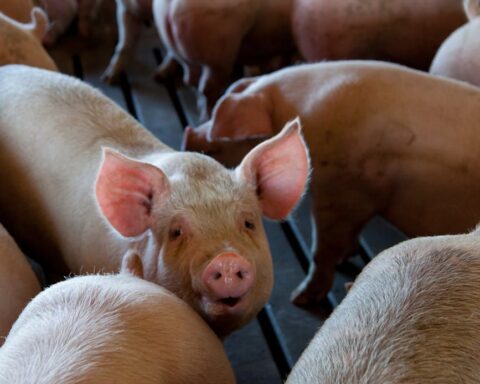

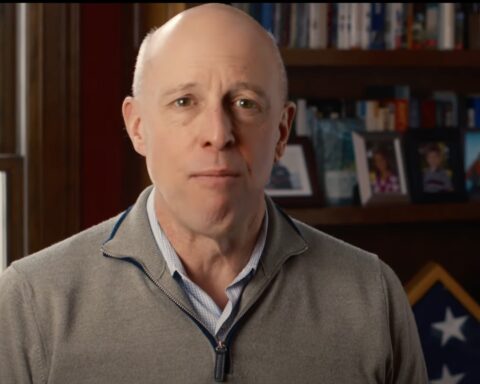

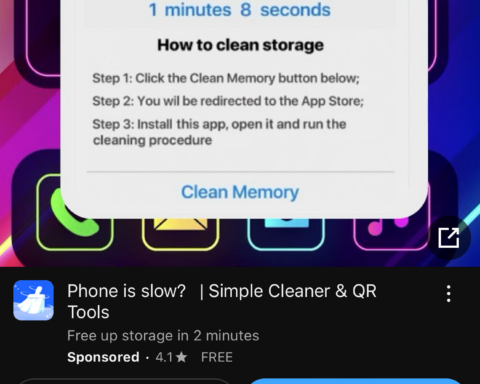









I’d like to sign this letter in support.
Hey, Veronica!
The Greylock Glass reported on this letter, but isn’t part of the originating group of people. Perhaps the list of resources Robin offered is helpful?
https://docs.google.com/document/d/1m7CISkCX1mzYQ2XatL1n60zdrZKCAjsdHro5ijINP4M/
Thanks!
— Jay